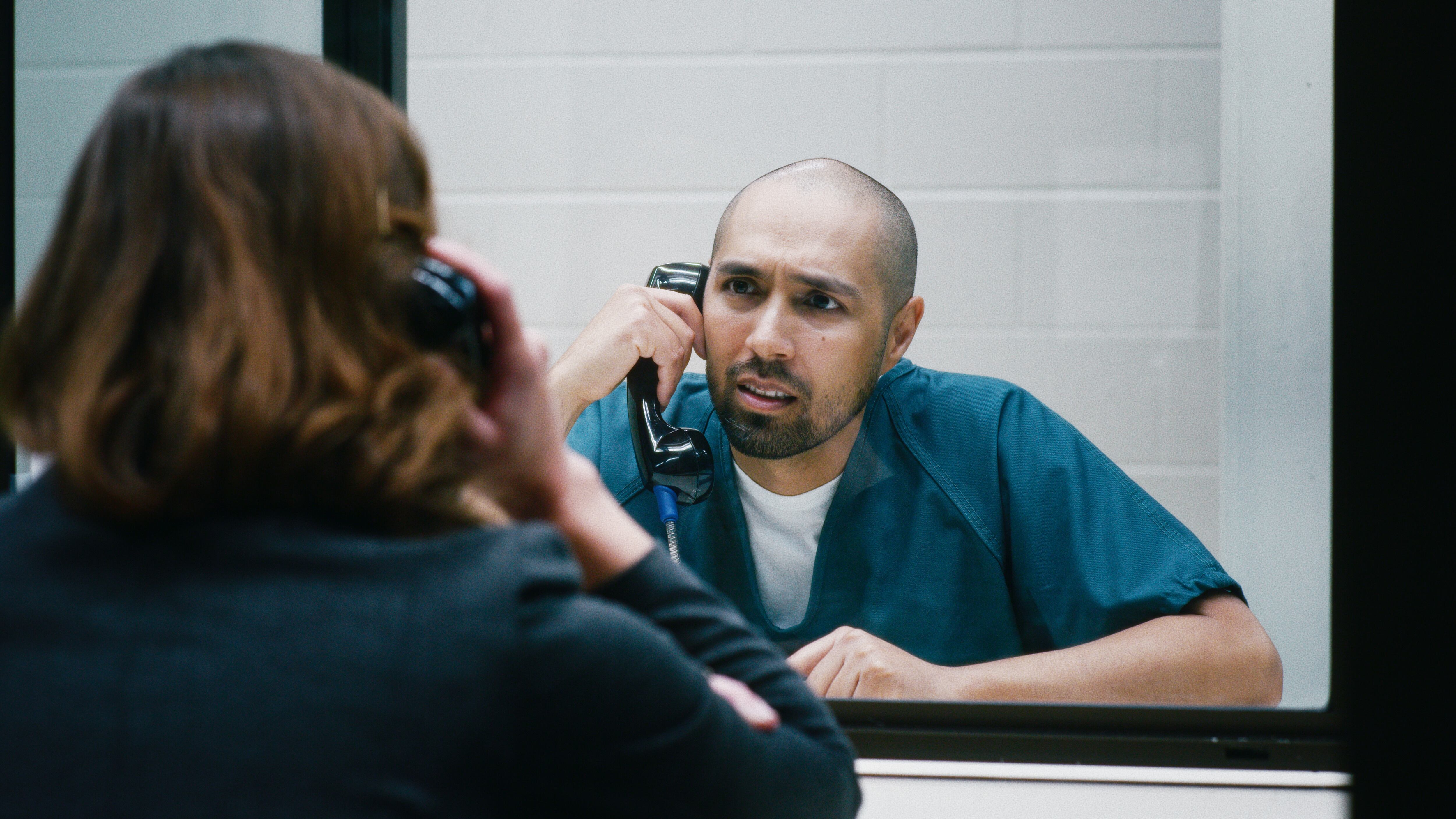“They’re poems…,” the lawyers and cops in Above the Trees keep telling Charles incredulously. It’s the same tone they’d probably take if someone tried to enter a unicorn into evidence at a murder trial.
Even so, Charles the poet (played by Barret O’Brien) believes his portraits-in-verse may hold the key to solving a deadly crime that’s rocked Ashland, Ore.
Certainly, poetry unlocks filmmaker Gary Lundgren’s fifth Oregon-made feature in other ways.
In Above the Trees, Lundgren—the Ashland director of Calvin Marshall (2009) and Phoenix, Oregon (2019)—traces a tragedy’s aftershocks and twists of fate. When a beloved pillar of the community, Gabriel (Julian Remulla), dies of a head injury in Ashland’s lush, sprawling Lithia Park, his best friend Gustavo (Luis Rodriguez) becomes the prime suspect. That’s an easy leap in investigators’ eyes: Gustavo is a former boxer and the ex-boyfriend of Gabriel’s fiancée, Coral (Danielle Kelly).
Lundgren says he hatched the film’s concept in part by getting hooked on landmark true-crime docuseries like Making a Murderer and The Jinx.
“I was getting a feeling for how many stories of injustice are out there in our criminal justice system, the inherent biases of it, with everyone protecting their own ground and reputations,” Lundgren says.
That critique comes through loud and clear in Above the Trees, which screen May 22 at the Hollywood Theatre, followed by a Q&A with Lundgren. The crime drama depicts the steamrolling momentum of the legal system and shines even brighter light on the fragile human lives held in its sway.
Still, this subject matter is a left turn for Lundgren, whose filmography is neither very process-obsessed nor overtly political. The through lines of his films tend to be character, humanism, the highs and lows of small-town life. In turn, Above the Trees foregrounds the emotional anatomy of the case (over the revelation of facts) through timeline-scrambling structure and five main characters.
The film’s Southern Oregon actors also served as direct inspiration for their characters. Just like her character in Above the Trees, Danielle Kelly is a Jefferson Public Radio host. Indeed, Luis Rodriguez is a devoted boxing fan, and in Above the Trees he plays the lead trainer at the Spartan Boxing Club in Medford. Meanwhile, Barret O’Brien, who plays Charles, has also written poetry collections, and Lundgren based several character qualities on O’Brien’s hyper-intentional, smartphoneless approach to life.
“Maybe [Charles] is clairvoyant, but maybe he’s just aware,” Lundgren says of the poet character who becomes the film’s civilian detective.
O’Brien is one of seven performers in Above the Trees who’s acted at Ashland’s renowned Oregon Shakespeare Festival. The actors’ availability was part of the film’s genesis, as Lundgren began to shoot in 2021. Everywhere he looked at the time, there were Ashland actors out of work—with OSF closed by COVID-19.
The resulting shoot was a free-flowing 40 days, unfolding across six months. Lundgren had never made a movie on that clock before and savored the opportunity to film locally, chronologically and among friends.
“How amazing to shoot something chronologically,” the director says. “You can actually approach the next scene differently because you saw what happened before it; it wasn’t just an idea in your head.”
Given those process positives, Above the Trees may mark a turning point in Lundgren’s filmmaking methods. His previous work was equally focused on character relationships and Rogue Valley community dramas, but it always involved a known Hollywood actor (Steve Zahn, Tom Skerritt, James Le Gros) and trying to bring investors on board with a buyable premise.
“It’s Rudy, except he doesn’t get the winning hit at the end,” Lundgren recalls his pitch for the slice-of-life baseball film Calvin Marshall.
“It’s not a good pitch,” he adds, laughing.
Even for Phoenix, Oregon, which ended up the No. 1 movie in America when box offices went briefly all digital in spring 2020, Lundgren still somewhat laments that he had to boil the movie down to a “they open a bowling alley to change their lives” premise and then rush through production.
“I’m always grateful, of course, but there was just a little bit of resentment,” Lundgren says. “Like, why can’t we just [shoot] for another week? We’re here! Let’s try to do it really well, instead of like shooting nine pages today. So I got to try to do that with Above the Trees.”
This latest film falls into the Screen Actors Guild’s micro-budget category—under $20,000—a ballpark in which Lundgren will remain for his next movie, The Pelican, an independent drama hinging on four adults in a house, confronting mortality. If Charles the busking poet of Lithia Park was going to direct films, he’d surely make them this way, looking for that sacred wisp of the artistic process, even in a genre as potentially salacious as (fictionalized) true crime.
“What excites me about making a movie in this phase is doing pure art,” Lundgren says. “We’re not spending hardly any money. We’re just going to follow this thing where it goes.”
SEE IT: Above the Trees plays at Hollywood Theatre, 4122 NE Sandy Blvd., 503-493-1128, hollywoodtheatre.org. 7 pm Wednesday, May 22. $12 general admission, $10 for seniors, students and children.
